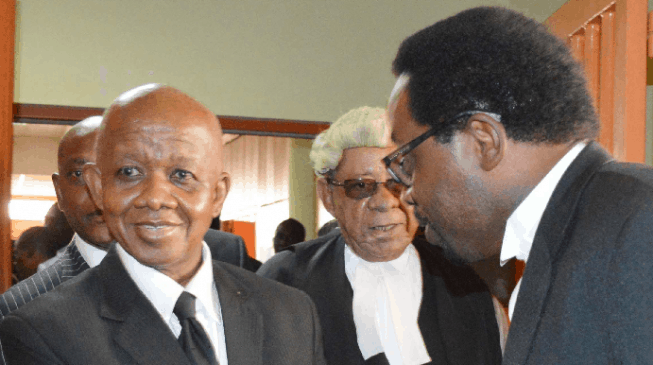Nigeria News
NJC explains why “corrupt” judges were recalled


The National Judicial Council (NJC) says it decided to recall the six judges accused of corruption because federal goverment refused to prosecute them by charging them to court.
The NJC also said it is untrue that the judiciary was not in support of the anti-corruption efforts of the presidency as claimed by Itse Sagay, chairman, presidential advisory committee against corruption (PACAC).
NJC through its spokesperson, Soji Oye, in a statement, said that the decision to recall the judges wasn’t reached hastily.
Oye said the council had removed several of its officers over corrupt practices since President Muhammadu Buhari came into office.
He said the NJC would soon publish the list of judicial officers that have been dismissed or compulsorily retired by the president or governors based on its recommendation.
“Contrary to the allegations by Professor Itse Sagay, (SAN), Chairman, PACAC, that Judiciary took a hasty decision to recall the Judges, and that it is not on board with anti-graft war of the federal government, the number of judicial officers that have been removed from office for misconduct particularly for corrupt practices since President Buhari administration came on board, that has been made public by NJC in October and November, 2016, speaks for itself in that vein,” the statement read.
“Some of the judicial officers were removed from office by dismissal or compulsory retirement by the President or governors on the recommendation of the National Judicial Council.
“While a number of the judicial officers were reprimanded by Council in the exercise of its Constitutional powers to exercise disciplinary control over judges of superior courts of record in the federation.
“But for suspension of the affected judicial officers from office by NJC, they would have to date been still performing their judicial duties.
“And these are officers that have been found culpable of gross misconduct by National Judicial Council after due process and diligent fact finding investigation by Council based on the Rule of Law enshrined in the 1999 Constitution of Federal Republic of Nigeria, as amended, NJC Judicial Discipline Regulations and Code of Conduct for Judicial Officers of the Federal Republic of Nigeria.
“The NJC will soon issue an advertorial on the foregoing and list out the number of judicial officers that have since April, 2000 when it held its inaugural meeting to date, been dismissed or compulsorily retired by the president or governors for gross misconduct or corrupt practices, on its recommendation; and also reprimanded by council by suspension or warning/caution.
“Council is not oblivious of the fact that some major stakeholders in the Judiciary and justice delivery sector in conjunction with the Nigerian Bar Association, met with the Honourable Attorney-General of the Federation and anti-graft and security agencies before the judicial officers were recalled, to discuss the subject matter and in particular the fate of the judicial officers that have not been charged and arraigned.
“When no progress was made, the NJC, which is the only constitutional institution empowered to exercise disciplinary control over judicial officers for misconduct, decided to recall the judicial officers.
“It is to be stressed that our criminal justice is also predicated on accusatorial system and not inquisitorial. Thus, every accused person is presumed to be innocent until his guilt is proved beyond reasonable doubt by the prosecution.”
